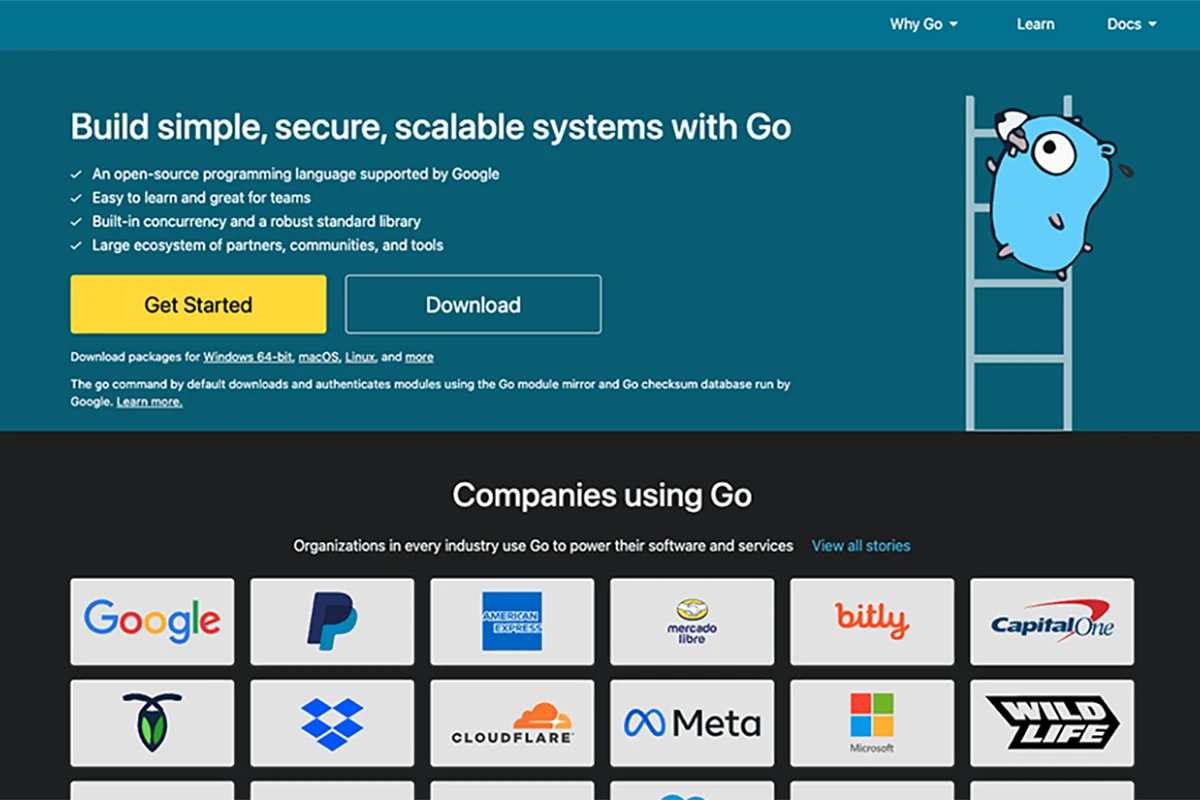GoLang, also known as Go, is an open-source programming language developed by Google. It was created to address common issues in software development, such as performance, scalability, and ease of use. Since its launch in 2009, GoLang has gained popularity among developers worldwide.
This guide will explain what GoLang is, its features, benefits, and why developers choose it for modern applications.
1. Understanding GoLang
GoLang is a statically typed, compiled language designed for efficiency and simplicity. It was created by Robert Griesemer, Rob Pike, and Ken Thompson at Google to improve productivity in large-scale software development.
Why Was GoLang Created?
Google developed GoLang to overcome challenges faced by traditional languages like C, C++, and Java. The goal was to create a language that:
- Compiles quickly
- Provides efficient concurrency
- Reduces complexity in large projects
- Enhances developer productivity
Who Uses GoLang?
GoLang is widely adopted by tech companies like:
- Google – Uses GoLang for its cloud infrastructure
- Uber – Implements GoLang for real-time ride tracking
- Dropbox – Migrated its backend services to GoLang
- Netflix – Uses GoLang for data processing
2. Key Features of GoLang
GoLang offers several powerful features that make it stand out from other programming languages.
Fast Compilation
Unlike interpreted languages like Python, GoLang compiles directly into machine code, making it much faster.
Concurrency Support
GoLang’s built-in goroutines allow developers to run multiple tasks simultaneously without consuming too many system resources.
Garbage Collection
GoLang includes an efficient garbage collector, which automatically manages memory, reducing memory leaks.
Cross-Platform Compatibility
GoLang supports multiple platforms, including Windows, Linux, and macOS, allowing developers to write once and run anywhere.
3. Benefits of Using GoLang
Many developers prefer GoLang due to its numerous advantages.
Easy to Learn
GoLang has a simple syntax, making it easier for beginners to pick up compared to languages like C++ or Java.
High Performance
Since GoLang is compiled rather than interpreted, it delivers high-speed execution, making it ideal for large-scale applications.
Great for Web Development
With frameworks like Gin and Echo, GoLang is an excellent choice for building fast and scalable web applications.
Active Community and Support
GoLang has a strong developer community, with plenty of documentation and open-source projects available.
4. Common Use Cases of GoLang
GoLang is widely used in various fields, including:
Cloud Computing
GoLang is the backbone of Google Cloud, and many cloud services use it for backend development.
Microservices Development
Many companies use GoLang to build microservices, thanks to its efficiency and concurrency support.
Network Programming
GoLang’s built-in libraries make it an excellent choice for networking, APIs, and server-side applications.
Conclusion
GoLang is a powerful, modern programming language that offers simplicity, speed, and scalability. Its growing adoption by leading tech companies makes it an excellent choice for developers looking to build high-performance applications.
